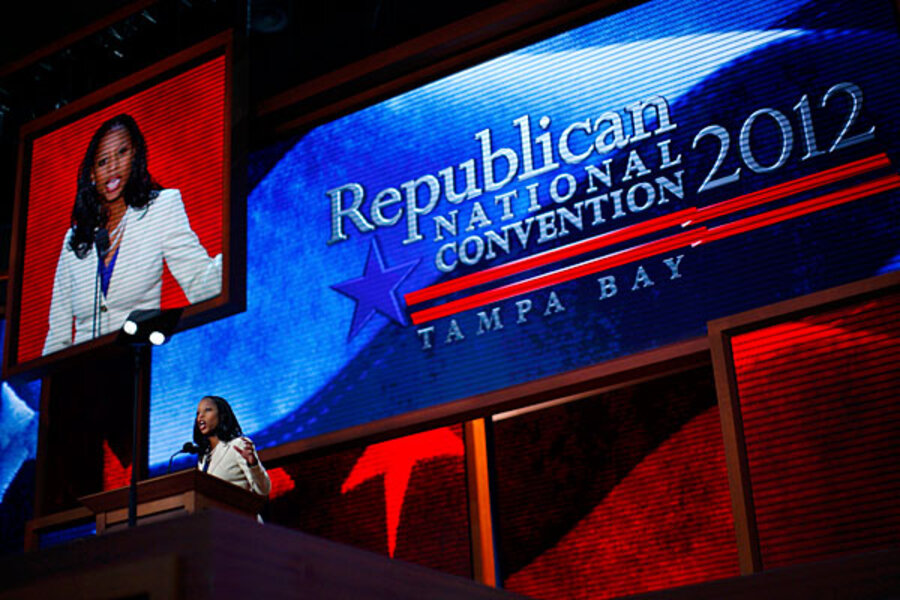For the Election 2012, the actual number of minority voters matters less than their turnout, especially in swing states, says Frey.
“It depends on what degree minority voters’ enthusiasm and turnout balances the white voters’ enthusiasm and turnout,” Frey says in an interview with the Monitor. “In 2008, minorities were the winners in that smackdown.”
In 2008, Hispanic votes made a big difference for Obama in Florida and Nevada. In North Carolina, Virginia, Pennsylvania, and Ohio – dominantly white states – the black vote balanced the white Republican vote, giving Obama the win.
This year, white voters could increase their support for Mr. Romney, which makes the minority vote crucial to Obama, Frey says. “That is the way he will win.”
A USC Annenberg/Los Angeles Times poll published on Aug. 23 shows that Romney leads among white voters, 55 percent to 39 percent, and Obama leads minority voters 76 percent to 17 percent, including 92 percent among blacks and 68 percent among Hispanics.
In the Republican primary, 90 percent of the voters were white, Frey says.
But going forward, such as dramatic demographic split will not be sustainable, he says. Republicans, like the Democrats, recognize that the future of politics must include minority voters.
“Part of the reason the Republicans have featured minorities at the convention is to show sympathetic white voters that they understand the changing demographic and that they are paying attention,” Frey says. “I say politicians are the best demographers – at least the winning ones.”








